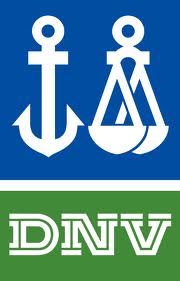 Oslo: Sweden has become the 28th country to ratify the Maritime Labour Convention, and the threshold requirement for entry into force is expected to be fulfilled very soon. Shipowners, management companies, crew manning agencies and yards are encouraged to act now in order to handle the requirements effectively.
Oslo: Sweden has become the 28th country to ratify the Maritime Labour Convention, and the threshold requirement for entry into force is expected to be fulfilled very soon. Shipowners, management companies, crew manning agencies and yards are encouraged to act now in order to handle the requirements effectively.
On 12 June, the International Labour Organisation announced that Sweden had become the 28th country to ratify the Maritime Labour Convention (MLC) 2006. DNV has further information that Cyprus has submitted its documents of ratification and the ILO has announced that the Russian Duma has adopted the Russian documents of ratification. As only two more ratifications are needed (which will very likely be Cyprus and Russia), it appears clear that the threshold entry-into-force requirement of 30 countries ratifying the MLC 2006 will be met very soon. The Convention will enter into force 12 months after the threshold is met, and Certification will be required for ships of 500 gt or over engaged in international trade, and ships from both ratifying and non-ratifying states will be subject to Port State Control to ensure compliance with Convention requirements.
DNV is maintaining a strong involvement in the MLC work, and a team of DNV specialists located worldwide is ready to assist clients in all aspects of handling the Convention requirements.
Detailed requirements
The Convention requirements are very detailed and cover a wide range of topics, and shipowners or ship managers operating ships must develop and implement measures to ensure compliance with the requirements and ensure that ships are inspected and certified within the deadlines or risk challenges from inspectors and port state control.
The convention has very detailed requirements in a vide variety of areas such as, minimum age, medical certification, qualifications, employment agreements, use of private recruitment and placement services, hours of work or rest, manning levels, accommodation and recreational facilities, food and catering, health and safety and accident prevention, medical care, complaint procedures and payment of wages. Experience shows that shipowners and managers will have to develop new or revise procedures in order to handle the Convention.
It must be noted that only a couple of countries have completed their Declaration of Maritime Labour Compliance identifying how they are implementing the Convention in their national legislation. Though there is some latitude in the Convention for implementation through ‘substantial equivalence’, DNV believes most flag states will seek to implement the requirements with the aim of achieving a level playing field. The ILO has estimated that 40, 000 ships will come within scope of the Convention and the industry will have to be prepared for substantial work to be done before ships can be certified.
Urged to start now
Due to the imminent entry into force of the Convention, the level of detail in the Convention, the amount of work needed and the expected rush for certification in the months before entry into force, DNV urges shipowners, ship managers, crew manning agencies and yards to start work now in order to understand and manage the requirements. “Shipowners will benefit from the one-stop inspection and certification services we are making available, ” says Georg Smefjell, Head of Section for DNV’s Management Systems. “We’re confident that our in-depth knowledge of the new requirements and the basis for their development will enable us to deliver effective and positive solutions to our clients.”





